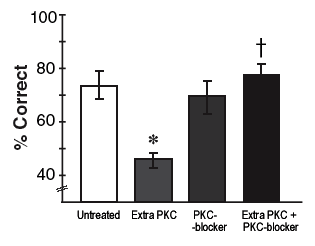Broom looks like gorse to those just beginning to recognise bush flowers.
A simple idea to
improve children’s written work
Deborah Sutton. Headteacher, Bassett Green Primary School
Our ‘Work Proud’ guidelines are giving students
confidence in their handwriting.
Putting pen to paper should be a natural instinct for
children by the time they reach Key Stage 3:
the gateway into articulating their thoughts, expressing
complex ideas and answering questions
with confidence and fluency.
After four years working at a large secondary school in a
pretty tough area, I'd seen four cohorts
of fresh-faced Year 7 children arrive and settle into
life in secondary education.
It always surprised me that they seemed relatively
lacking in confidence, particularly when it came to written work. A simple
spelling mistake could cause a total meltdown out of the blue,
and torn out pages or screwed up worksheets were far too
common for my liking.
This year, in my new role as headteacher of one of the largest
feeder primaries, the penny dropped.
They had never been allowed to use a pen before.
Despite an elaborate system of handwriting schemes of
work, certificates and pen licenses,
not one child in my current Year 6 was writing with a pen
at any point.
Handwriting, and indeed basic letter formation,
had lost its way after the early years foundation stage,
and simply not been a priority.
It was no wonder that no child ever achieved the complex
criteria for a pen licence.
"We held a whole school INSET on handwriting,
and launched a school-wide handwriting font which is
displayed in all classrooms."
Without basic training in letter formation and cursive
script, our children are being limited
to printing for the rest of their writing careers.
If we don’t help them to develop the basic skills
to write down
their thoughts quickly and easily, we are limiting their communication for all
time.
Imagine how difficult it must be to be thinking
constantly about what the next letter looks like,
rather than focusing on the
content of the writing, or the great ideas that you want to express.
Having discovered this fundamental writers’ block, at our
school we have produced
‘Work Proud’
guidelines to upgrade the quality of the children’s written work.
Drawn up by year teams, these aim to ensure high quality
presentation across the year group.
Each reflects the stage of development and age-related
expectations for those children.
The guidelines include simple rules: in maths we write one
digit in each square in our book;
if we make a mistake we put a single line through it and
write the word again;
we always underline titles and then miss a line.
We held a whole school INSET on handwriting, and launched
a school-wide handwriting font which is displayed in all classrooms. All staff
are trying hard to model this font to children, either in their own
handwriting, or by using the electronic versions that can transform a word
document in one click!
None of this is radical or earth shattering; indeed, many
schools will have had this in place for years.
There’s still some work to do in managing mistakes and
building fluency, but we have taken steps
to give our children confidence in their writing,
preparing the ground for them to be expressive, articulate writers for the rest
of their lives.
http://www.future-leaders.org.uk/insights-blog/simple-idea-improve-childrens-written-work/?gclid=Cj0KEQjw9tW5BRDk29KDnqWu4fMBEiQAKj7sp2L3ZkrFS5OlsCt0g7gIFZLAG2boDFQ201x2ZnmLQg4aAokB8P8HAQ
You can TCR software and engineering manuals for spontaneously recall – or pass that exam.
I can Turbo Charge Read a novel 6-7 times faster and remember what I’ve read.
I can TCR an instructional/academic book around 20 times faster and remember what I’ve read.
A practical overview of Turbo Charged Reading YouTube
How
to choose a book. A Turbo Charged Reading YouTube
Advanced Reading Skills Perhaps you’d like to join my FaceBook group ?
Perhaps
you’d like to check out my sister blogs:
www.innermindworking.blogspot.com
gives many ways for you to work with the stresses of life
www.ourinnerminds.blogspot.com which takes
advantage of the experience and expertise of others.
www.happyartaccidents.blogspot.com
just for fun.
To
quote the Dr Seuss himself, “The more that you read, the more things you will
know.
The
more that you learn; the more places you'll go.























